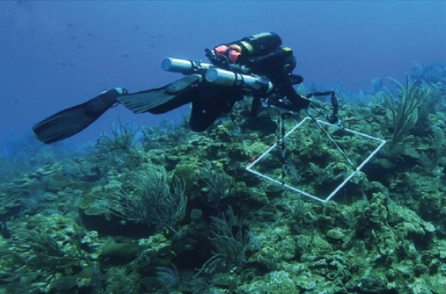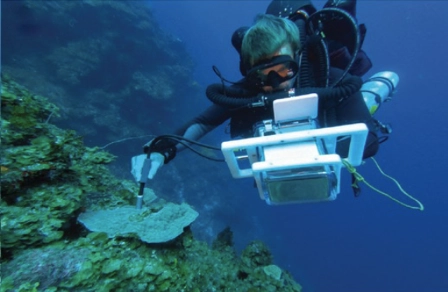Fiorella Prada, Grace Saba and Maxim Gorbunov Awarded Rutgers Global Grant Project for studying upwelling systems as potential thermal refugia for corals
Upwelling systems: thermal refugia for reef-building corals in the Eastern Tropical Pacific
Team: Fiorella Prada, Grace Saba, and Maxim Gorbunov
The eastern tropical Pacific (ETP) is an oceanographically dynamic environment that is home to some of the most isolated coral reefs in the world. Within the ETP, coral reefs on the Pacific coast of Costa Rica provide an ideal natural laboratory to study the influence of oceanographic variability on coral-reef ecosystems. There is a strong oceanographic gradient from the Gulf of Papagayo (Guanacaste), where there is seasonally strong, wind-driven, upwelling, to the Gulf of Nicoya (Puntarenas), further south, where upwelling is weaker. These two gulfs are also subject to interannual variability driven by the El Niño– Southern Oscillation (ENSO). Seasonal upwelling and ENSO interact to define the thermal minima and maxima in these systems and, consequently, influence the ecology of coral reefs in the ETP. This team plans to perform simultaneous measurements of coral physiology co-located with carbonate chemistry observations in these two Gulfs to test the overarching hypothesis that upwelling systems could be potential thermal refugia for corals during intense thermal events. Specifically, in situ benthic imagery and variable fluorescence measurements will be used to obtain high-resolution long-term data on the percent cover and physiological response of the corals to seasonal upwelling. Physiological measurements will be taken using custom-built diver-operated fluorescence induction and relaxation (FIRe) fluorometers. These instruments are the only underwater equipment capable of measuring a comprehensive suite of coral photophysiological parameters to determine how the symbionts acclimate (or not) to increased temperatures in situ.


